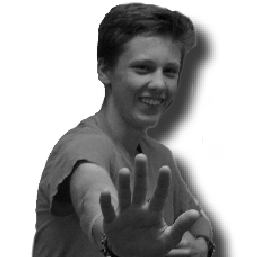Flag on the play
Referees are ruining the game by making conflicting and unreasonable calls

September 22, 2017
‘Tweet! Tweet!’
That’s most of what you hear when watching a sports game today, thanks to referees’ inconsistent and excessive calls that force players, coaches and fans to focus on them, rather than the game itself.
While referees are human and mistakes are bound to happen, games start to fall apart when refs make ‘make-up calls’.
A ‘make-up call’ is when one awful call for a team will be made, which will lead to a chain of wrong calls, as refs to try make up for the call before. This can go on for the entirety of a game.
An infamous example of this came back in early April. During the College Basketball National Championship game (Gonzaga vs. North Carolina), the referees stopped play an absurd amount of times in the second half attempting to make the game more equal, but they were just deliberately cutting the flow from the game. This made that game one of the most unenjoyable championship games that comes to memory.
More relevant, in the Evanston vs. Palatine football game on Sept. 8, the referees made a series of ‘make-up’ calls in the third quarter, slowing the pace of the game down. This was right when Evanston had a shot at bringing the game within a couple of points, but Palantine took advantage of the slower pace and chewed up clock.
Athletes aren’t able to get going and play the sport with competition when refs are constantly stopping play. Players are forced to play a different game, one in which they are scared to give it their all, because they know in their subconscious that refs are waiting to blow that whistle.
This causes player to play their game differently, which can, ironically, cause a lack of safety. When players are more focused on the referees and possible wrong calls that may be made against them, they are less focused on a hazardous play that can be coming their way.
While it is the referee’s job to follow the rules of the game and keep the players safe, they shouldn’t interrupt the game… or stop competitive play because it gets a little physical. Physicality is part of sports. Let the kids play!
During a soccer match, or a football game, when a referee makes one wrong call due to physicality, the players not only lose focus on the game, but they also lose their tenacity because they’re scared to be physical at this point.
When referees become a part of the game to a point where the players start playing differently to avoid fouls, penalties, and stoppage in play, the problem really shows itself. And this problem exists in professional, college, and high school sports.
It actually is an extremely prevalent problem for the ETHS boys soccer team. They had nine cards through their first nine games. This is an extremely high and unlikely amount of cards to have this early in the season. The team will be disqualified from the playoffs if they have 24 by the end of the regular season.
While the team definitely has to play a little smarter, they also are hurt by ‘make-up calls’ and ‘non-calls’, as referees get extremely inconsistent late in the game.
Inconsistency also causes the players’ anger to rise as well. When the referees don’t make equal and correct calls during most of the game, and then change the way they officiate, players don’t know where the line for certain things lies.
This inconsistency extends when you go further into games and reach celebrations. When players get penalized for celebrating a great play, but actual fouls are not called, understandable anger comes from coaches and players. It seem as if the referees don’t want the players to have fun when playing their respective games. On top of making sure consistent calls are made, the referees have to let the players play.
Without consistency, teams are left wondering what will or won’t be called, and they become more focused on that rather than the game. This causes teams to feel as if they’re playing against the other team and the referees, which definitely should not be the case.









